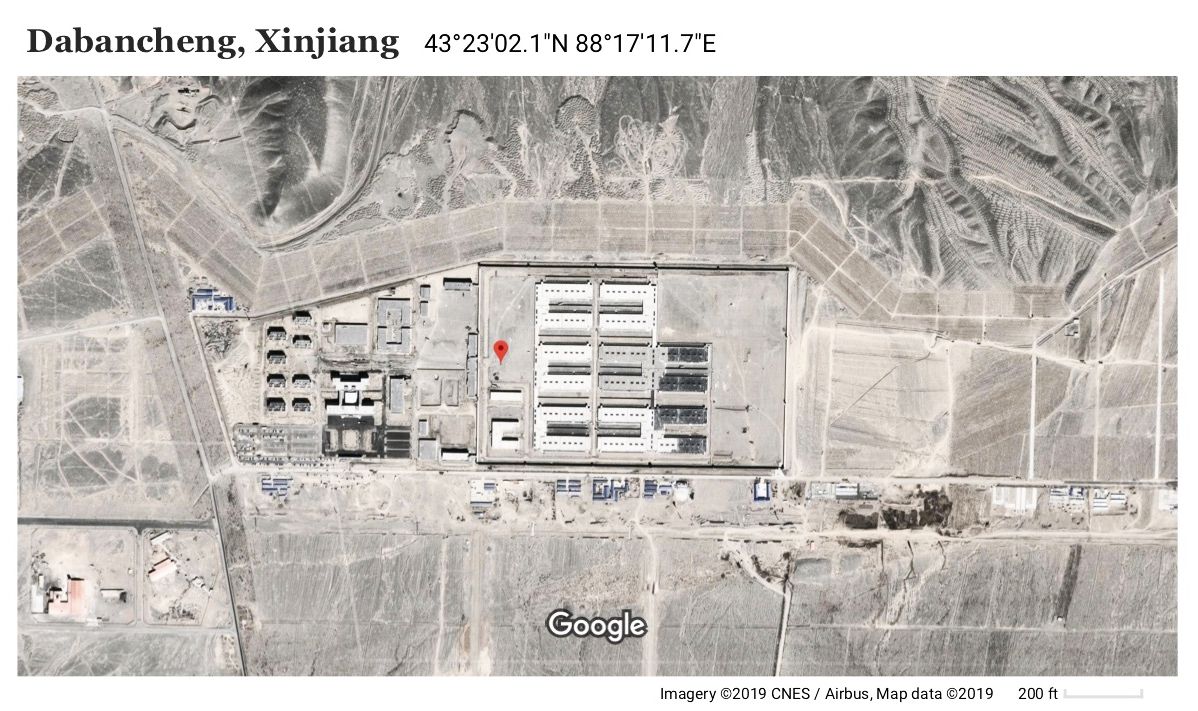
Courtesy of Google Maps
A team of graduate and undergraduate students, supported by the Paul China Tsai Center at Yale, have partnered together to raise awareness of human rights abuses against the Uighurs — a predominantly Muslim minority in China — through outreach, petitioning and work with Uighurs in the United States.
The Chinese government has detained about 1 million of the Xinjiang’s Muslim-minority population in “re-education” camps in Xinjiang, according to The New York Times. At these camps, detainees were allegedly forced to renounce Islam, drink alcohol, eat pork and sing Chinese anthems.
A Times investigation published last Thursday found that Kenneth Kidd, a professor emeritus at the Yale School of Medicine, shared genetic data with scientists from China’s Ministry of Public Security, which used the information to profile and oppress millions of Uighurs.
Spearheaded by Ned Levin SOM ’20, who spent a large part of his life in China, a group of law school students — as well as a number of undergraduates and graduate students from other professional schools — has come together to try and raise awareness of the situation in China.
“This student group is just a ragtag group of students who have noticed that things are not fine in China,” said Kelsang Dolma ’19, a student in charge of recruiting undergraduates to the initiative. “We recognize that we have the resources to perhaps help the Uighurs. We cannot wait for some dramatic U.S. policy change to help ameliorate the human rights crisis — to be idle is arguably to be complicit.”
The student group is divided into three subgroups, each tasked with tackling a different area of the problem. One group provides aid to Uighurs living in the United States who are in need of asylum applications. Another group is working toward running phone banks and pushing Congress to support bills like the Uyghur Human Rights Policy Act of 2018 — a Senate bill that could be the first step to placing sanctions on China for its mass detention of the Uighur people, according to The Washington Post. The third group works on the broader Yale community response to the events occurring in Xinjiang, such as the University’s response to companies sourcing from camp labor or supplying technology to facilitate the oppression of the Uighur people.
The aim of this movement is to raise student awareness on the issue. While there is nothing that can be done to physically help those in the camps, members of the group interviewed by the News said that they hope that the group’s actions will place pressure on the Chinese government.
“The movement at Yale is entirely student-formed and -led,” Levin said. “There are a group of us at the Law School and a number of undergraduates and graduate students from other professional schools who are interested in the issue for a variety of reasons whether it be academic or personal.”
As of September 2017, more than 90,000 police and security officials are stationed to survey the Uighurs in the Xinjiang province
Kelly Wei | kelly.wei@yale.edu







